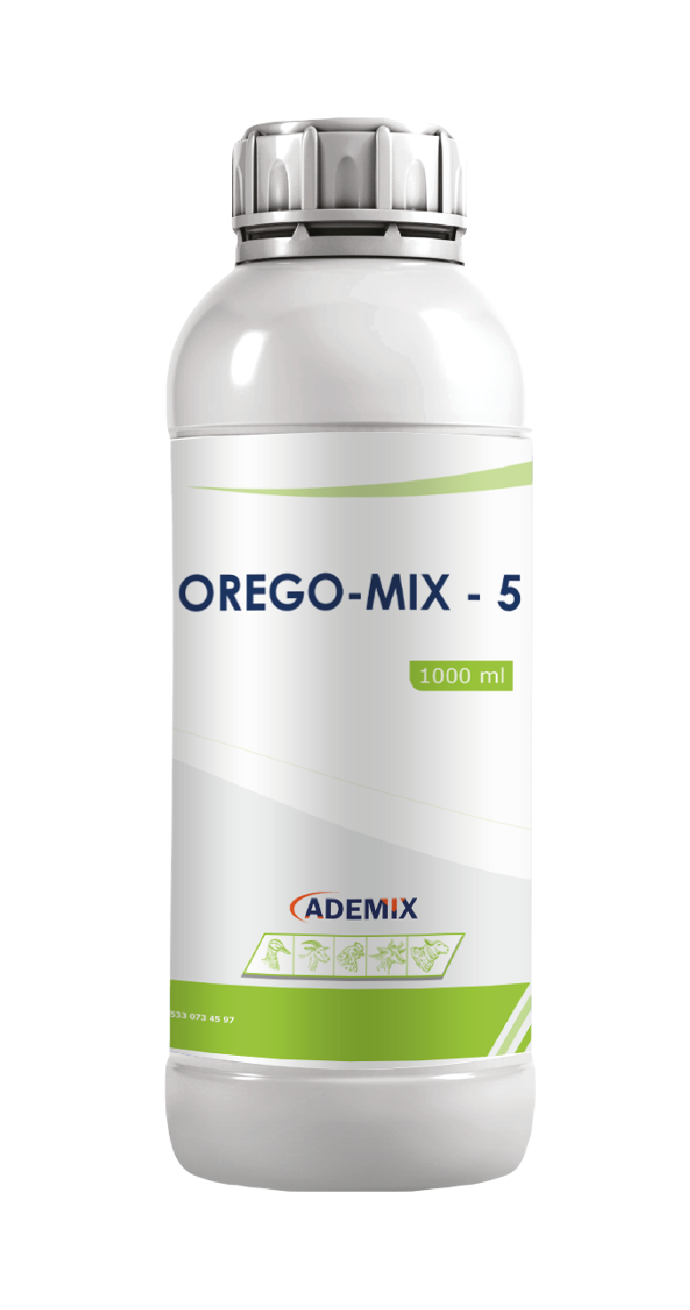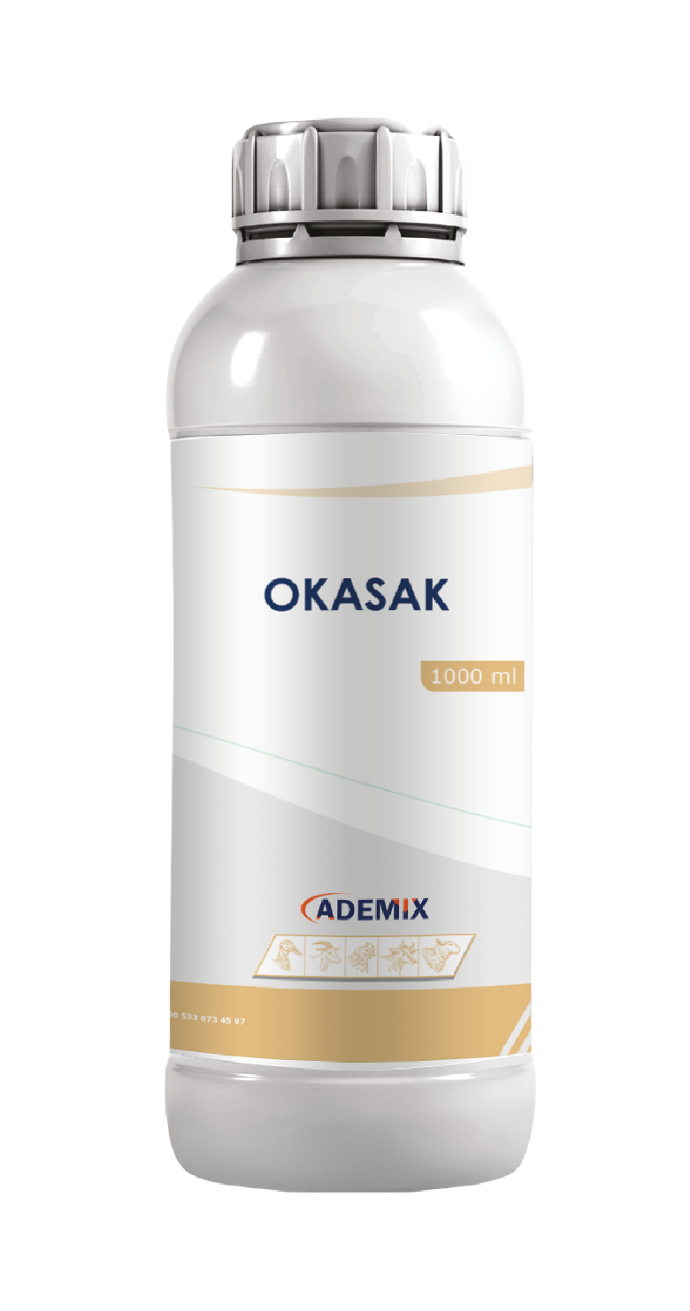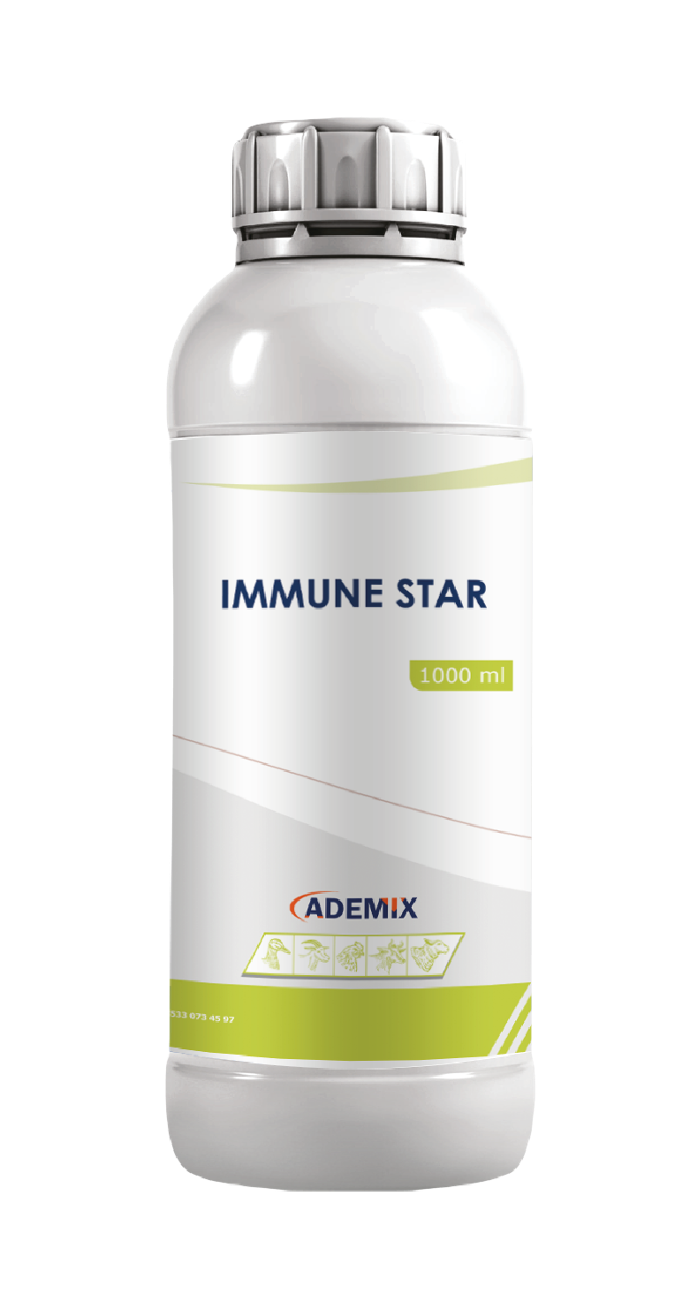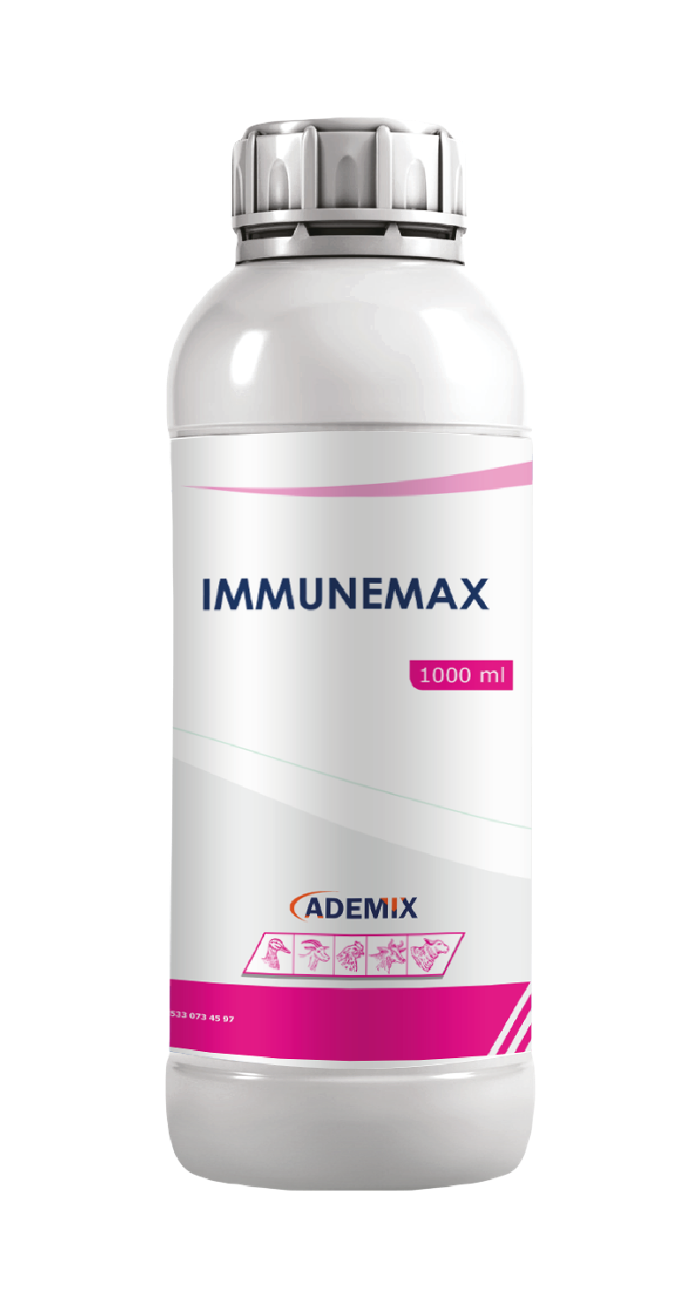Poultry IMMUNE MODULATORS
Understand the natural immune STIMULANTS for protection and resilience
Immune system
Immune system:
- It is one of the body's most complex biological systems that plays a crucial role in protecting animals from diseases and environmental threats and sustaining living organisms in the environment.
- It is a specialized system that allows organisms, including animals, to recognize and effectively combat foreign particles.
Understanding this complex system enables us to develop effective health strategies and treatments for animals
The imal immune system consists of a variety of parts and systems that work in harmony to maintain the integrity of the organism.
Key aspects of the immune system include:
- Natural immunity: This is part of the primary immunity that the animal generates when it is born. Such protection includes the skin barrier, mucous membranes, neutrophil cells and macrophages.
- Acquired immunity: This type of immunity is developed over time as a result of exposure to pathogens. It includes lymphocytes such as B cells and T cells and antibodies that recognize and attack diseases.
- Immune memory: It enables immune cells to remember diseases to which animals were exposed in the past, allowing them to respond faster and stronger to those diseases in subsequent times.
Factors and problems that can cause a decline in poultry immunity
- Improper nutrition: Nutritional deficiency can lead to weak immunity in poultry. Poultry needs to receive proper nutrition by providing the necessary vitamins and minerals in its feed.
- Water and feed contamination: Water and feed contaminated with bacteria or viruses can be a source of disease and weaken their immune system.
- Unsuitable environmental conditions: Excessive high or low temperatures may negatively affect the immunity of poultry. Wet conditions also can increase the spread of diseases.
- Stress and mismanagement: Exposure to psychological stress and mismanagement in the poultry farm can reduce the immunity of poultry and increase its susceptibility to diseases.
- Infections and diseases: Infection with bacteria, viruses and parasites can cause immunity problems in poultry.
- Iunregulated breeding: Unregulated breeding can increase the spread of diseases among poultry.
- Inadequate vaccination: Failure to vaccinate poultry with required vaccines can lead to a weakened immune system and increased spread of diseases.
- Excessive use of antibiotics: Excessive use of antibiotics can increase bacterial resistance and reduce the effectiveness of treatment.
- Environmental pollution: Farm contamination with harmful chemicals or agricultural waste can negatively affect the health and immunity of poultry.
- Genetic pressure: Some poultry breeds can be more susceptible to diseases than others due to genetic pressure.
To maintain the health of poultry and enhance their immunity, it is necessary to provide a clean and healthy environment, good nutrition, support with natural immune boosters, and care for health care, in addition to implementing appropriate vaccination programs and monitoring diseases regularly.
Low immunity in poultry can lead to many health and epidemiological problems in poultry farms
-
Epidemic diseases: Poultry becomes more susceptible to viral and bacterial diseases when its immunity is low. Examples include Newcastle disease, avian influenza, and salmonella.
- Respiratory infection: Poultry can develop respiratory infection when their immunity is low, leading to symptoms such as runny nose and difficulty breathing.
- Diarrhea and intestinal diseases: Poultry may be more susceptible to diarrhea and intestinal diseases when their immunity is low. This can lead to weight loss and decreased production rate.
- Viral activity: Some viruses, such as Gumboro virus (IBD), can attack the immune system of poultry and lead to a decline in their immunity.
- Deteriorating egg quality: Diseases and health challenges may lead to deteriorating egg quality and reduced production.
- Increased use of antibiotics: Low immunity in poultry can require the use of more antibiotics, which increases the problem of antibiotic resistance.
- Economic losses: Low immunity in poultry can cause significant economic losses to poultry farmers as a result of decreased production and increases in treatment costs.
Poultry farmers must take care of proper nutrition and health care and ensure a clean and healthy environment on the farm. Vaccines and natural immune boosters also play an important role in enhancing poultry immunity and preventing diseases.
Immune boosters are an important element in the health and sustainability of poultry
The importance of immune boosters in poultry:
- Disease resistance: Immune mechanisms play a crucial role in resisting diseases and infections. When chickens are equipped with a strong immune system, they can resist many infectious diseases and viruses, which reduces poultry loss and helps maintain the profits of poultry farmers.
- Improved growth rates: Chickens with strong immune boosters can have better growth rates. Immune boosters contribute to enhancing poultry's utilization of nutrients and improving the conversion of food into meat.
- Egg and meat quality: Poultry with a healthy immune system produce better quality eggs and meat.This means that high-quality pharmaceutical products achieve consumer happiness and increase the marketing value of poultry products.
- Reducing Costs: Caring for your poultry farms helps reduce your poultry health care costs.When chickens are more resistant to disease, the use of antibiotics and vaccines is reduced, providing cost savings.
- Production sustainability: Immunity levers contribute to the sustainability of the poultry industry by reducing losses and improving production efficiency.
Based on the above: It can be said that immunity boosters play a vital role in the health and productivity of poultry, and they enhance the sustainability of the poultry industry and reduce health and economic risks that could affect the sector.
The solution that avoids these problems is our diverse range of products
After a group of experiments and research, we were able to develop four products that play important and different roles in the field of protecting poultry and raising their immunity, which are:
Benefits of oregano oil in raising the immunity of poultry:
Antibacterial and antiviral: Oregano oil contains compounds that show antibacterial and antiviral activity. Useful in combating infections and diseases affecting poultry.
Promoting digestive health: Oregano oil is useful in enhancing the health of the digestive system of poultry and preventing digestive diseases.
Anti-Inflammatory Properties: Oregano oil has anti-inflammatory properties that can help reduce irritation and inflammation in the intestinal and respiratory tract of poultry.
Supporting immune health: Oregano oil components strengthen the immune system of poultry and increase their ability to fight diseases.
Improving overall performance: By enhancing chicken health and immunity, it can improve the overall performance of poultry, such as weight gain and improved feed conversion rate.
Oregano Oil
Oregano oil: It is an essential oil extracted from the oregano plant.
CONTAINS:
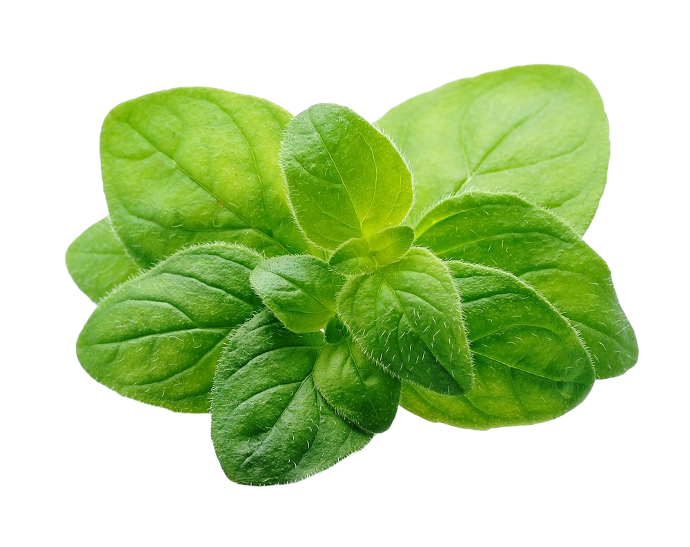
- It is used to improve immunity and increase the body's resistance todiseases.itis used as an auxiliary treatment in cases of viral, bacterial and parasitic infections.
- It is used as an alternative treatment to antibiotics, especially in organic production.
- Due to its aromatic scent, it acts as an appetizer and increases feed consumption after illness.
- It is used as an aid in various stress situations.
INDICATIONS:
- Poultry: 500 ml / 1000 liters of drinking water for 3 – 5 days.
- Horses and Cattle: 10 ml / 100 kg body weight from 3-5 day.
- Sheep, Goats and Calves: 10 ml / 100 kg body weight for 3-5 days.
DOSAGE:
- Poultry: 500 ml / 1000 liters of drinking water for 3 – 5 days.
- Horses and Cattle: 10 ml / 100 kg body weight from 3-5 day.
- Sheep, Goats and Calves: 10 ml / 100 kg body weight for 3-5 days.
DOSAGE:
- Protects against infections.
- Reduces Coccidiosis and Cryptospores.
- Prevents appetite problems. Improves the feed cycle.
- It has antibacterial and antiviral properties.
- It increases the secretion of bile from the liver.
- It regulates bowel functions. Stimulates the immune system.
- It is a strong bactericide, virus and protozoa killer, especially Salmonella and E.Coli.
INDICATIONS:
Antibacterial: Eucalyptus oil contains compounds that possess antibacterial and antiviral activity, which can help prevent infections and promote the overall health of poultry.
Activating the immune system: There is some research that indicates that eucalyptus oil may help enhance the activity of the immune system, and thus it can increase the ability of poultry to fight diseases.
Improving the respiratory system: Eucalyptus oil can be used in the respiratory systems of poultry to improve respiratory health and prevent respiratory infections.
Keeping insects away: Eucalyptus oil has insect repellent properties, and therefore it can be used to prevent parasitic and insect infestations that affect the health of poultry.
Improving the environment: Eucalyptus oil can be used to improve the environment of poultry farming by disinfecting places, feed, and water.
Eucalyptus Oil
Thyme oil: It is considered a nutritional supplement that can be used to improve the health and immunity of poultry.
Antibacterial effects: Thyme oil contains active substances that show antibacterial and antifungal effects. This can be useful in combating infections and diseases affecting poultry.
Strengthening the immune system: Some scientific studies indicate that thyme oil can help strengthen the immune system of poultry. This is because it contains substances that contribute to stimulating and strengthening the immune response.
Antioxidants: Thyme oil contains antioxidant compounds such as thymol and carvacrol, which help fight harmful oxidants. This can help reduce oxidative stress and cellular damage and can therefore enhance the overall health of poultry.
Improving respiratory health: Thyme oil can be beneficial in improving the respiratory health of poultry, thus reducing the risk of respiratory diseases.
Its role as an anti-inflammatory: Thyme oil can help reduce inflammation, which is important for poultry health. Infections can lead to a weak immune system and a negative impact on the overall performance of chickens.
Thyme Oil
Garlic oil: It has many benefits in raising immunity in poultry:
Antibacterial and antiviral: Garlic oil contains antibacterial and antiviral compounds such as allicin and chymobetaine, which can help prevent infectious diseases and enhance poultry health.
Strengthening the immune system: Garlic oil can contribute to enhancing the activity of the immune system in poultry, making them more able to resist diseases.
Reducing respiratory infections: Garlic oil is useful in reducing respiratory infections in poultry, which reduces production losses and improves production efficiency.
Improving bird digestion: Garlic oil can enhance the digestive process in poultry and contribute to their better utilization of nutrients.
Stabilizes the digestive tract: Garlic oil can help reduce irritation and inflammation in the digestive tract of poultry, improving their overall health.
Garlic Oil
Garlic Oil, Thyme Oil, Eucalyptus Oil
CONTAINS:
Strengthening the immune system: Citrus extracts are rich in vitamin C and other phytochemicals that enhance the function of the immune system in poultry.This can help fight diseases and infections.
Antioxidants: Citrus fruits contain antioxidants such as flavonoids and carotenoids that protect cells from damage caused by oxidative stress. This can contribute to maintaining the health of chickens.
Promote digestion: Citrus extracts can improve poultry's digestion and better absorption of nutrients, contributing to their growth and increased egg or meat production.
Antibacterials: Citrus fruits contain substances that may help combat harmful bacteria and viruses and thus reduce the spread of diseases in poultry farms.
Improving egg and meat quality: Adding citrus extracts to poultry diet can improve the flavor and quality of eggs and meat.
Improving overall health: Artichoke contains many nutritional compounds and antioxidants that can help enhance the health of poultry and thus enhance their immunity.
Strengthening the immune system: Some studies indicate that artichoke extract contains components that help strengthen the immune system of living organisms.
Antibacterial and antiviral: Artichoke may contain compounds that possess antibacterial and antiviral properties, and this may be useful in preventing diseases and enhancing the health of poultry.
Improving digestion: Artichoke contains fiber and compounds that can help improve the digestive process in poultry, which contributes to enhancing their overall health.
Artichoke Extract
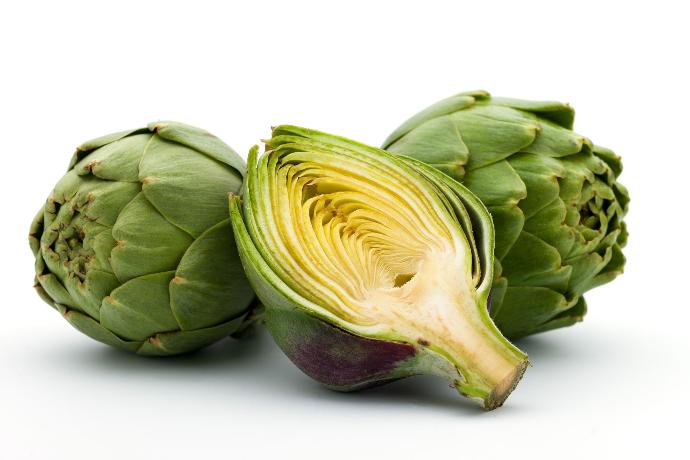
Yeast Extract
Yeast Extract, Artichoke Extract, Citrus Extract, Sorbitol
CONTAINS:
Increase the level of antibodies: Yeast extract enhances the production of antibodies in poultry bodies, and this can enhance the ability to fight diseases and infections.
Improving feed digestion: Yeast contains digestive enzymes that contribute to improving feed digestion in the poultry stomach, which means better utilization of the nutrients in the feed and thus enhancing public health.
Promote small intestine growth: Yeast extract can help promote the growth and health of poultry's small intestine, promoting nutrient absorption and improving metabolism.
Preventing infections: Yeast extract can be helpful in preventing bacterial and viral infections in poultry.
Reducing stress and fatigue: Yeast contains B vitamins and mineral salts that enable poultry to better deal with environmental conditions and reduce stress and stress levels.
Improving feed consumption efficiency: Yeast extract can enhance feed consumption efficiency, reducing feed cost and increasing poultry productivity.
INDICATIONS:
- An immune booster used in poultry to improve resistance to viral and bacterial diseases
- Use before and after vaccinations for best resistance
- Prevention of Intestinal Diseases caused by pathogenic bacteria or fungi
- Improving egg production, shell quality, fecundity and hatchability
DOSAGE:
- Poultry: 1000 ml / 1000 liters of drinking water for 3 – 5 days.
- Horses and Cattle: 10 ml / 100 kg body weight from 3-5 day.
- Sheep, Goats and Calves: 10 ml / 100 kg body weight for 3-5 days.
Citrus Extract

CONTAINS:
Lysine, L-Threonine, DL-Methionine, L-Tryptophan, Citric Acid, Lactic Acid, Zinc Glycinate Copper Glycinate, Yeast Extract
Amino Acids
Amino acids: They are essential components of poultry nutrition and play an important role in raising their immunity and improving their health performance.
Amino acids play an important role in raising immunity in poultry:
Strengthening the function of the immune system: Organic minerals such as zinc, selenium, and copper play an important role in enhancing the function of the immune system in poultry. Increasing levels of these minerals contributes to enhancing antibody production and enhancing the immune response.
Strengthening the immune barrier: Organic minerals contribute to strengthening the blood-intestinal barrier in poultry, which prevents the entry of harmful microbes and harmful environmental factors into the body.
Improving skin and feather health: Organic minerals play a role in improving skin and feather health in poultry. Healthy skin and feathers help reduce the chances of transmission of infections and diseases.
Supporting liver function: Organic minerals contribute to supporting liver function in poultry, and this helps in cleansing the body of toxins and viruses.
Improving hormone balance: Some organic minerals play a role in regulating the hormone balance in the chicken’s body, which leads to improved growth and poultry performance.
Promoting digestive system health: Organic minerals can contribute to enhancing the health of the digestive system in poultry, which increases nutrient absorption and improves the digestive process.
Promoting chicken growth: Organic minerals play a role in promoting chicken growth and increasing their weight in a healthy and effective way.
Organic minerals - Zinc - Copper
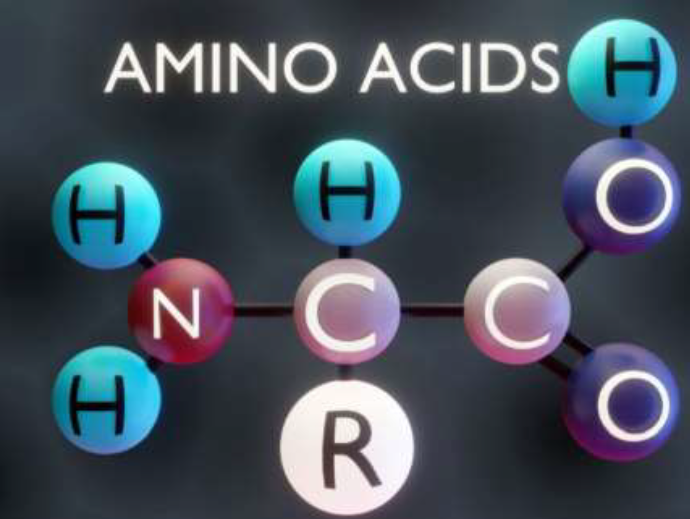
It enhances the activity of immune cells and enhances the production of antibodies such as antibodies and cytokines, which contributes to enhancing the immune response of poultry.
Promoting the proliferation of immune cells and enhancing their basic functions in fighting diseases.
Enhancing poultry immunity by regulating the production of antibodies.
Enhancing the genetic stability of poultry and enhancing their general health, which contributes to enhancing the immune response.
Regulates the functions of the immune system and contributes to fighting infections.
Regulates immune system functions and can help control immune responses.
Organic acids - Citric Acid - Lactic Acid
Enhancing intestinal functions: Organic acids act as a nutritional supplement that supports digestive health and improves intestinal functions in poultry. This helps in improving the absorption of essential nutrients and strengthening the immune system.
Improving the bacterial environment in the intestine: Organic acids help create a specific environment in the intestine that is unsuitable for harmful bacteria and parasites. This reduces the chances of intestinal diseases and contributes to enhancing the general health of poultry.
Increase Nutrient Absorption: Organic acids can increase the ability of poultry to absorb essential nutrients such as vitamins and minerals. This contributes to enhancing health and immunity.
Reducing stomach and intestinal infections: Organic acids can help reduce inflammation in the digestive system of poultry, which reduces stress and helps boost immunity.
Improving skin and feather health: Organic acids can contribute to improving the skin and feather health of poultry, making them less susceptible to disease and infection.
Yeast Extract
Increase the level of antibodies: Yeast extract enhances the production of antibodies in poultry bodies, and this can enhance the ability to fight diseases and infections.
Improving feed digestion: Yeast contains digestive enzymes that contribute to improving feed digestion in the poultry stomach, which means better utilization of the nutrients in the feed and thus enhancing public health.
Promote small intestine growth: Yeast extract can help promote the growth and health of poultry's small intestine, promoting nutrient absorption and improving metabolism.
Preventing infections: Yeast extract can be helpful in preventing bacterial and viral infections in poultry.
Reducing stress and fatigue: Yeast contains B vitamins and mineral salts that enable poultry to better deal with environmental conditions and reduce stress and stress levels.
Improving feed consumption efficiency: Yeast extract can enhance feed consumption efficiency, reducing feed cost and increasing poultry productivity.
INDICATIONS:
- An immune booster used in poultry to improve resistance to viral and bacterial diseases.
- Use before and after vaccinations for best resistance.
- Prevention of Intestinal Diseases caused by pathogenic bacteria or fungi.
- Improving egg production, shell quality, fecundity and hatchability.
DOSAGE:
-
Poultry: 1000 ml / 1000 liters of drinking water for 3 – 5 days.





